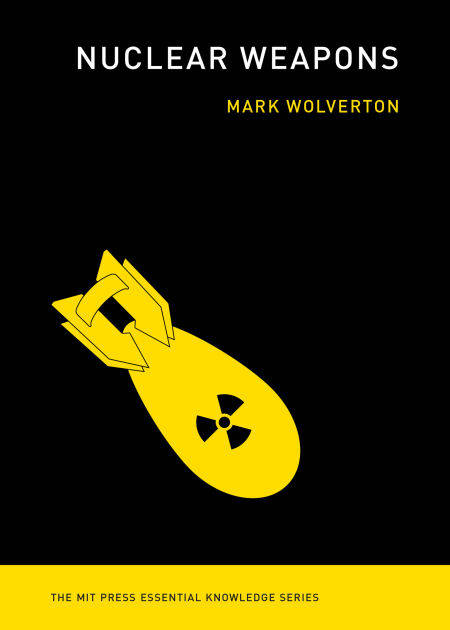
Bedankt voor het vertrouwen het afgelopen jaar! Om jou te bedanken bieden we GRATIS verzending (in België) aan op alles gedurende de hele maand januari.
- Afhalen na 1 uur in een winkel met voorraad
- In januari gratis thuislevering in België
- Ruim aanbod met 7 miljoen producten
Bedankt voor het vertrouwen het afgelopen jaar! Om jou te bedanken bieden we GRATIS verzending (in België) aan op alles gedurende de hele maand januari.
- Afhalen na 1 uur in een winkel met voorraad
- In januari gratis thuislevering in België
- Ruim aanbod met 7 miljoen producten
Zoeken
€ 16,71
+ 16 punten
Omschrijving
A primer on nuclear weapons, from the science of fission and fusion to the pursuit of mutual assured destruction, the SALT treaties, and the Bomb in pop culture.
Although the world’s attention has shifted to drone-controlled bombing and cyberwarfare, the threat of nuclear war still exists. There are now fourteen thousand nuclear weapons in the hands of the nine declared nuclear powers. Even though the world survived the Cold War, we need to understand what it means to live with nuclear weapons. In this volume in the MIT Press Essential Knowledge series, Mark Wolverton offers a primer on nuclear weapons, from the science of fission and fusion to the pursuit of mutual assured destruction, the SALT and START agreements, and the Bomb in pop culture.
Wolverton explains the basic scientific facts, offers historical perspective, and provides a nuanced view of the unique political, social, and moral dilemmas posed by nuclear weapons. He describes the birth of the Bomb in 1945 and its use against the Japanese cities of Hiroshima and Nagasaki; explains how a nuclear bomb works; recounts episodes when the world came close to waging nuclear war, including the Cuban missile crisis in 1962; discusses nuclear policy and nuclear treaties; and traces the influence of such films as On the Beach, Dr. Strangelove, and The Day After.
Although the world’s attention has shifted to drone-controlled bombing and cyberwarfare, the threat of nuclear war still exists. There are now fourteen thousand nuclear weapons in the hands of the nine declared nuclear powers. Even though the world survived the Cold War, we need to understand what it means to live with nuclear weapons. In this volume in the MIT Press Essential Knowledge series, Mark Wolverton offers a primer on nuclear weapons, from the science of fission and fusion to the pursuit of mutual assured destruction, the SALT and START agreements, and the Bomb in pop culture.
Wolverton explains the basic scientific facts, offers historical perspective, and provides a nuanced view of the unique political, social, and moral dilemmas posed by nuclear weapons. He describes the birth of the Bomb in 1945 and its use against the Japanese cities of Hiroshima and Nagasaki; explains how a nuclear bomb works; recounts episodes when the world came close to waging nuclear war, including the Cuban missile crisis in 1962; discusses nuclear policy and nuclear treaties; and traces the influence of such films as On the Beach, Dr. Strangelove, and The Day After.
Specificaties
Betrokkenen
- Auteur(s):
- Uitgeverij:
Inhoud
- Aantal bladzijden:
- 280
- Taal:
- Engels
- Reeks:
Eigenschappen
- Productcode (EAN):
- 9780262368407
- Verschijningsdatum:
- 7/02/2022
- Uitvoering:
- E-book
- Beveiligd met:
- Adobe DRM
- Formaat:
- ePub

Alleen bij Standaard Boekhandel
+ 16 punten op je klantenkaart van Standaard Boekhandel
Beoordelingen
We publiceren alleen reviews die voldoen aan de voorwaarden voor reviews. Bekijk onze voorwaarden voor reviews.









